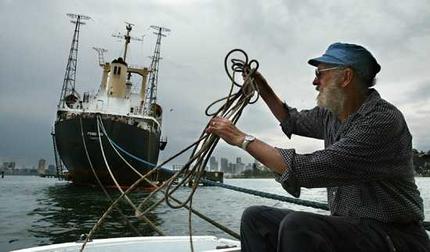Тут у нас в корееведной тусовке http://astra-wizard.livejournal.com/15818.html разгорелся спор о том, на сколько вообще перспективно знание языков в современном мире и о будущем профессии переводчика в частности. Одурманенный идеологическим воздействием англо-американского империализма я рискнул выступить с гипотезой о том, что мир катится в одном направлении – прямо в руки транснациональных корпораций и страховых компаний. Глобализация требует от всех одного — подчиниться и перейти на английский. В этих условиях переводчиков ждёт трудная судьба, граничащая с медленным и мучительным вымиранием. Вот некоторые из аргументов и тезисов, усвоенных мной после 15 лет бесплодных попыток доказать Западным людям, что языки – это нужно и полезно. Простите за пессимизм…
* * *

Для примера Ю.Корейцы ещё лет 15 назад были традиционалистами, советывали детям ехать в Россию учить русский или в Японии учить японский. В наши дни корейцы своих детей в перводчиках могут представить лишь в кошмарном сне. Для большинства из них залогом стабильности и процветания являются айтишная компания или бухгалтерская контора.
Почему это так? Потому что в Европе и Америке представления именно такие. Полвека интенсивной миграции населения, интеграционные процессы и наконец глобализация показали, что Переводчик – это не профессия (ну если только Вас не пригласили в ООН или НАТО). Африка, благодаря колониальному наследию, уже говорит на английском и французском. В Азии этот процесс только начинается. Поэтому Россия и Корея пока ещё остаются для переводчиков лакомым куском…
 Отличительной особенностью азиатского турне главы американского внешнеполитического ведомства стало то, что первой остановкой на её пути стал Токио. Хилари Клинтон, пригласила японского премьера Таро Асо посетить Вашингтон и стать первым иностранным лидером, с которым встретится новый президент США Барак Обама. Япония, в настоящий момент, испытвает большие экономические проблемы (только за последний квартал её ВВП сократился на 13%) и внутриполитические сложности (рейтинг премьер-министра Асо упал ниже отметки 10%). Тем не менее, целью визита и приглашения в Белый Дом было желание подчёркнуть важность Японии, как главного сателита США в Восточной Азии.
Отличительной особенностью азиатского турне главы американского внешнеполитического ведомства стало то, что первой остановкой на её пути стал Токио. Хилари Клинтон, пригласила японского премьера Таро Асо посетить Вашингтон и стать первым иностранным лидером, с которым встретится новый президент США Барак Обама. Япония, в настоящий момент, испытвает большие экономические проблемы (только за последний квартал её ВВП сократился на 13%) и внутриполитические сложности (рейтинг премьер-министра Асо упал ниже отметки 10%). Тем не менее, целью визита и приглашения в Белый Дом было желание подчёркнуть важность Японии, как главного сателита США в Восточной Азии.




You must be logged in to post a comment.